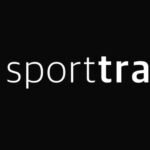Material to the Miss

Insufficient regulatory procedures were identified by the Colorado Division of Gaming and Colorado Limited Gaming Control Commission (CLGCC) in the state’s initial year of legalized sports betting.
The Colorado Office of the State Auditor (OSA) released a comprehensive 56-page audit report on Monday, providing extensive information on the errors and oversights discussed.
The main focus of the report completed in April was the performance of the agencies from the start of legalized Colorado sports betting on May 1, 2020, to April 30, 2021.
The main findings from the inspection are outlined below.
- 90 percent of in-state retail and online sports betting operators operating with momentary licenses raise concerns about the precision and performance of the state & ’s background checks.
- Differences between sports betting operators and their fortnightly tax returns were revealed through daily information.
- The Colorado General Assembly ought to consider the stance on tax laws that presently permit sports gambling operators to claim and disclose their monthly operating losses.
According to an accompanying news release from the Office of the State Auditor (OSA), the assessment revealed that the Division and the Commission had inadequate procedures to investigate sports gambling operators and verify their eligibility for temporary licensing. Additionally, they were unable to gather enough evidence to confirm the accuracy of their regular tax filings.
Thank you, Insight and, for the entertainment department.
Division of Gaming Director Dan Hartman recently expressed his views on the assessment in an email to PlayinСolorado, following Tuesday’s events. In his message, he highlighted the challenging situation that the COVID-19 outbreaks have brought upon Colorado sports betting, which has placed state regulatory entities in a complex position.
Hartman expressed that CDOG would adhere to the 10 development suggestions provided by the assessment.
«We are grateful for the efforts of the Office of State Auditor and their valuable input on our initial year of operations,» expressed Hartman. The evaluation revealed areas that require enhancement in terms of records, policies, and procedures. We are confident that implementing these upgrades will strengthen the program, especially considering the evolving regulatory framework and dynamic industry. The Division of Gaming has already implemented the suggested recommendations. We eagerly anticipate ongoing discussions with the OSA team as we strive to put these suggestions into practice.»
Transient certificates bring up issues.
As of March 2022, Express accountants stated that 35 out of the 39 individuals engaged in gaming and online sports betting in Colorado possessed temporary credentials.
Users are granted equal rights and protections as permanent owners under temporary certificates. Nevertheless, in order to acquire these temporary licenses, the CDOG and CLGCC have required a significantly more comprehensive background investigation(s) to be conducted.
The state accountants conducted a thorough examination of some operators who were only partially licensed. They discovered that five of these providers still needed to complete their background checks.
No reference was made to the individuals whatsoever.
The three treatment omissions with the lowest frequency were criminal background checks, regulatory biographies in other game jurisdictions, and fiscal balance analyses.
According to the Colorado Audit Manager Jenny Atchley, inadequate investigations may lead to the Commission making arbitrary or unsupported temporary licensing decisions.
Vast variation and are present in reported wager numbers.
Online sports gaming operators, also referred to as operators, are liable to a 10% penalty on their proceeds. The income level in Colorado is currently unknown.
From May 2020 to April 2021, accountants conducted a review of 22 tax returns related to activities betting. Furthermore, they discovered a significant disparity in gaming participation among operators and the figures reported in their regular tax returns.
The most significant alteration occurred when an unidentified authority disclosed a surplus of $1.4 million in regular online sports betting revenues, diverging from the figures reported in its quarterly financial processing.
On the opposite side of the spectrum, a distinct operator disclosed that its regular sports betting accounts were approximately $1 million lower than its usual figures.
The OAS review revealed that CDOG does not need any supporting documentation for modifications made to claimed betting activity, even though these modifications directly affect the amount of sports betting taxes paid.
Unsatisfactory tax-related income-reduction strategy
The OAS audit report also mentioned sports betting operators and the constitutional obligation to publicly disclose monthly operating deficits.
Operators are authorized to deduct a certain percentage of &, , bonus, and rndquo from their online sports betting earnings. Additionally, they have the privilege to carry forward and deduct their regular operating losses. & ,
The state’s revenue from sports gambling fees may potentially decrease over time, as stated by the OAS.
According to the report, a total of 324 control tax filings were reviewed by accountants during the period of May 2020 to April 2021.
According to the study, if companies were not permitted to withdraw and advance operating costs, the State could have gained an extra $706,000 in tax revenues from sports betting during the first year.
The examiners raised concerns about the extent to which the existing legalization of coaching aligns with the political and voter mandates following the legalization of sports betting.
The document further suggests that the Colorado General Assembly should investigate this policy matter.
OAS opinions are approved by , CDOG, and CLGCC.
The information release states that the OSA is obligated by Colorado state laws to conduct a review of sports wagering requirements before May 1, 2022, at the minimum.
The regulations stipulate that an OAS activities gambling examination must be conducted at least once every five occasions thereafter.
As previously mentioned, the OAS has put forth 10 recommendations for modifying the CDOG and CLGCC, specifically regarding counsel subparts. These recommendations aim to enhance membership criteria and enhance the accuracy of betting operators’ calculations for their obligations, including taxes.
According to officials from the Division of Gaming and CLGCC, the implementation of care and policy changes will commence in September.
The CDOG stated in the document that it is currently collaborating with the Governor’s Office of Information Technology to enhance its data management system.
In his speech, CDOG emphasizes the objective of ensuring that all gambling practices adhere to the latest regulations and limitations set by the Commission and Division, with a focus on maintaining consistency whenever necessary.





